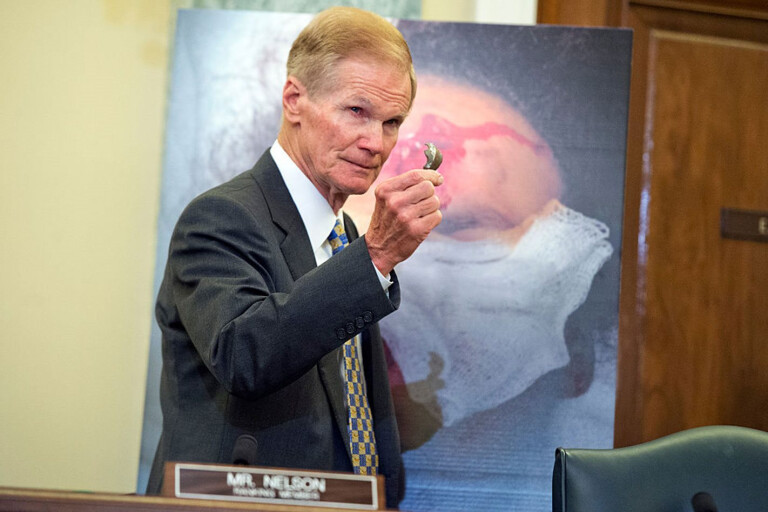
A university lecturer of mine had a theory on how to eliminate road toll overnight and it’s one you’ve probably heard, too. “Every new car”, he said, “should have a spike in the middle of the steering wheel and if you have a crash, even a minor one, you’ll be impaled and die”.
I dislike his idealist and simplistic theory intensely for several reasons. Firstly, it assumes any crash you’re involved in was your fault and, by simply driving sensibly, it could have been avoided, which we know to be completely untrue.
Even if you’re on best behaviour, there’s no guarantee a drunk/tired/texting idiot isn’t going to cause the collision and kill the pair of you. These types of deaths happen all the time without the help of a spike.
But it also ignores a fundamental flaw in the theory. People simply won’t change their driving behaviour even if they are very likely to die. Sounds absurd, doesn’t it?
But I firmly believe it to be true. If it wasn’t then people wouldn’t use their phones while driving, drive too fast or under the influence of drugs – things that are known to dramatically increase the risk of death at the wheel.
Alas, without a practical demonstration I could never convince everyone in the automotive engineering class that I was right but now, at last, I have almost the perfect analogy – the Takata airbag crisis.
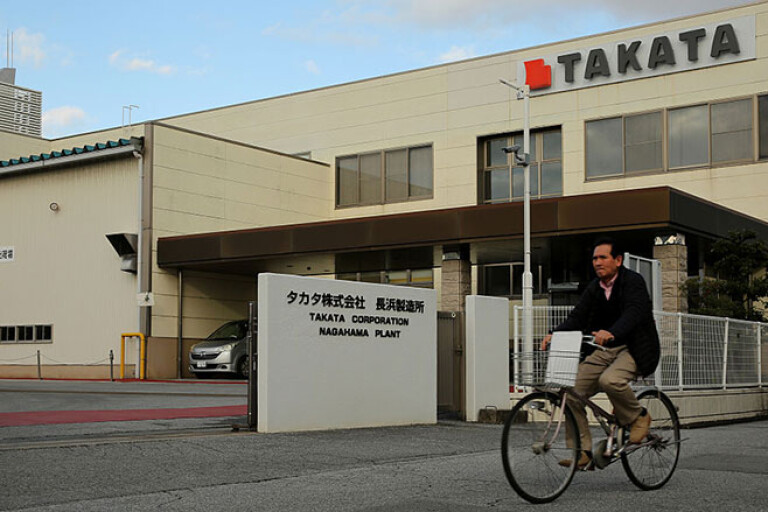
Right now, more than a million cars are out on Australian roads equipped with a component that, through a small manufacturing error, have been transformed from miraculous lifesaving devices into something chillingly similar to a hand grenade.
In the image at the top, US senator Bill Nelson holds a piece of the shrapnel that an exploding inflator can project through the cabin at supersonic speeds. That's more than 1200km/h. Right into your face.
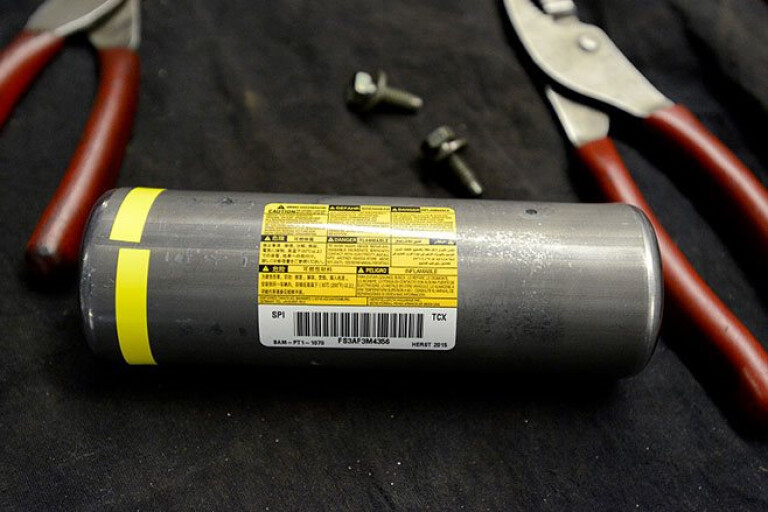
It’s a dark irony that has sparked the largest global automotive recall to date, injured more than 320 people and claimed at least 29 lives. Put simply, thousands of people are aware their car has a potentially fatal defect but they continue to drive it.
The defective Takata airbag is the spike in the middle of your steering wheel and no one seems to care.
Of course, there is a slight difference. Not every identified airbag module is defective and your untimely demise isn’t necessarily guaranteed in the event of a crash. But would you seriously take the risk?
It’s here that many motorists are dangerously applying the good old ‘it’ll never happen to me’ reasoning.
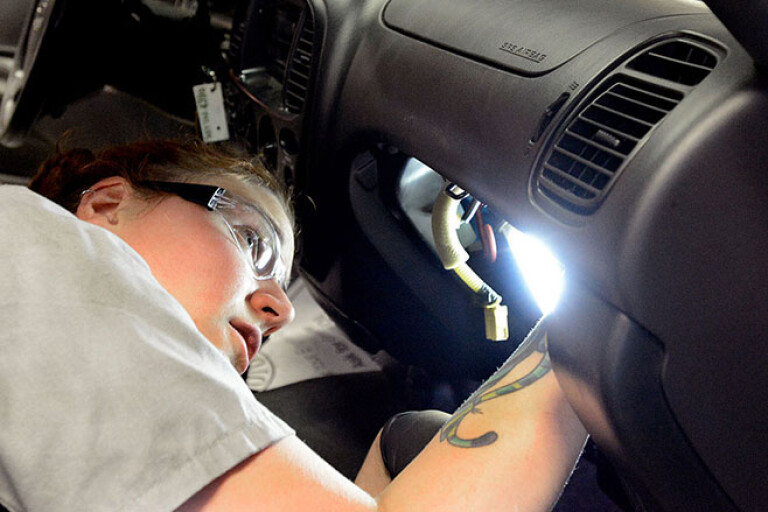
Well, let the statistics show that it absolutely could happen to you and if you keep driving a car with a defective airbag, it absolutely will happen to you.
People have died and people have been seriously injured here in Australia. This is not a drill.
If you haven’t yet picked a New Year resolution and own a car with an identified Takata airbag, get the recall done.
Don’t procrastinate, don’t forget about it, and definitely don’t drive the affected car. There’s a reason the government issued its first-ever compulsory automotive recall for the crisis and it should highlight just how real the threat is to you and your passengers.
In fairness, many drivers have already attempted to carry out the simple fix but have been told there simply aren’t enough parts to go round given the enormity of the problem. If you’re one of them, push back and ask the manufacturer how they are going to deal with it.
The defective airbag is not the fault of the car manufacturers but the responsibility to sort the problem certainly does lie with them.
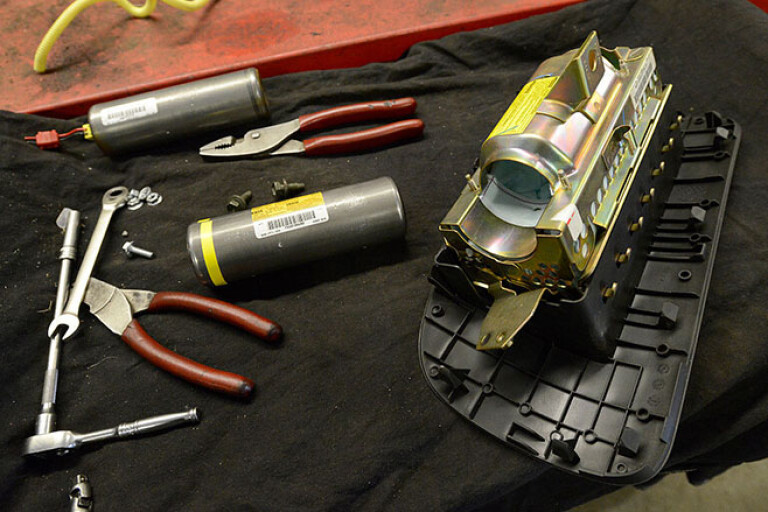
The ACCC has now confirmed that sufficient replacements are now available to complete the recall in a “timely manner” – the compulsory recall must be completed by the December 31 this year.
It’s also worth knowing that if the fix is going to take more than 24 hours, the manufacturer must provide you with a loan car.
Manufacturers are contacting owners of the 1.3 million vehicles that still haven’t been recalled but many are reporting problems reaching the current owners. It’s a great idea, therefore, to go to the manufacturer’s website or productsafety.gov.au and find out yourself.
If you’re the owner of an affected car, particularly one fitted with the more concerning Alpha type units, don’t delay in booking the car in and getting it sorted.
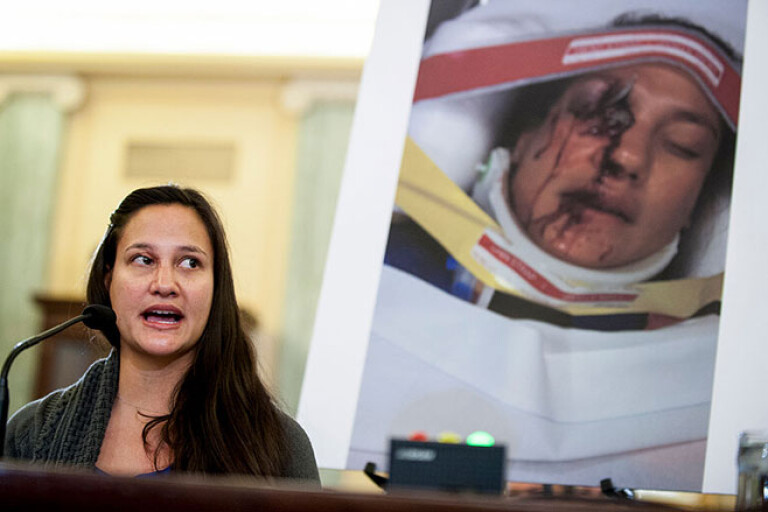
Globally, the crisis is estimated to ultimately affect 100 million vehicles – an unimaginable figure – but at least in Australia, the compulsory recall has given consumers the power to get action fast. Wouldn’t it be a brilliant result if, in 2020, we finally put this sinister problem on the spike?
Have you had your Takata bag replaced? Tell us your experiences - both good and bad - in the comments below.


COMMENTS